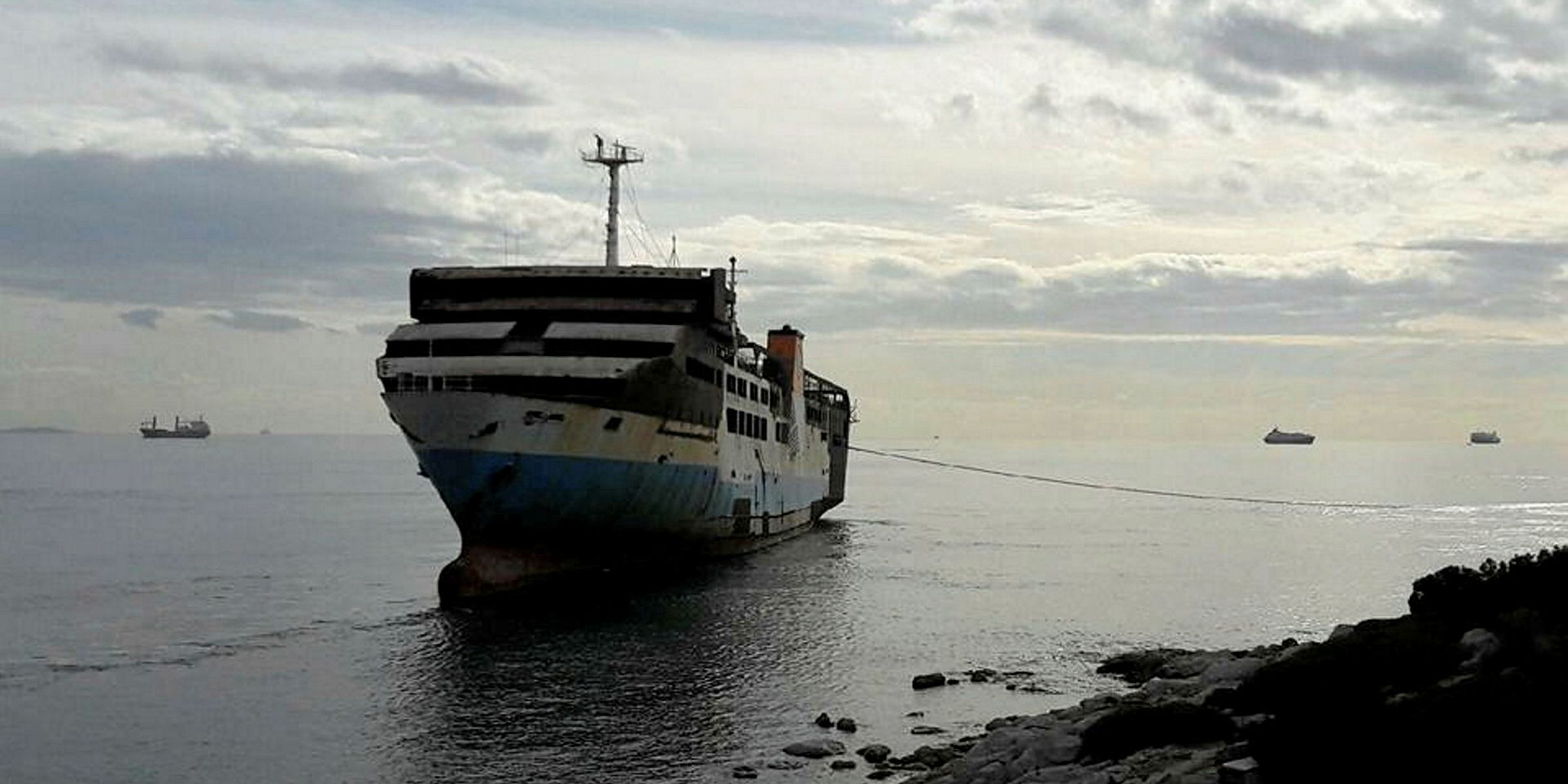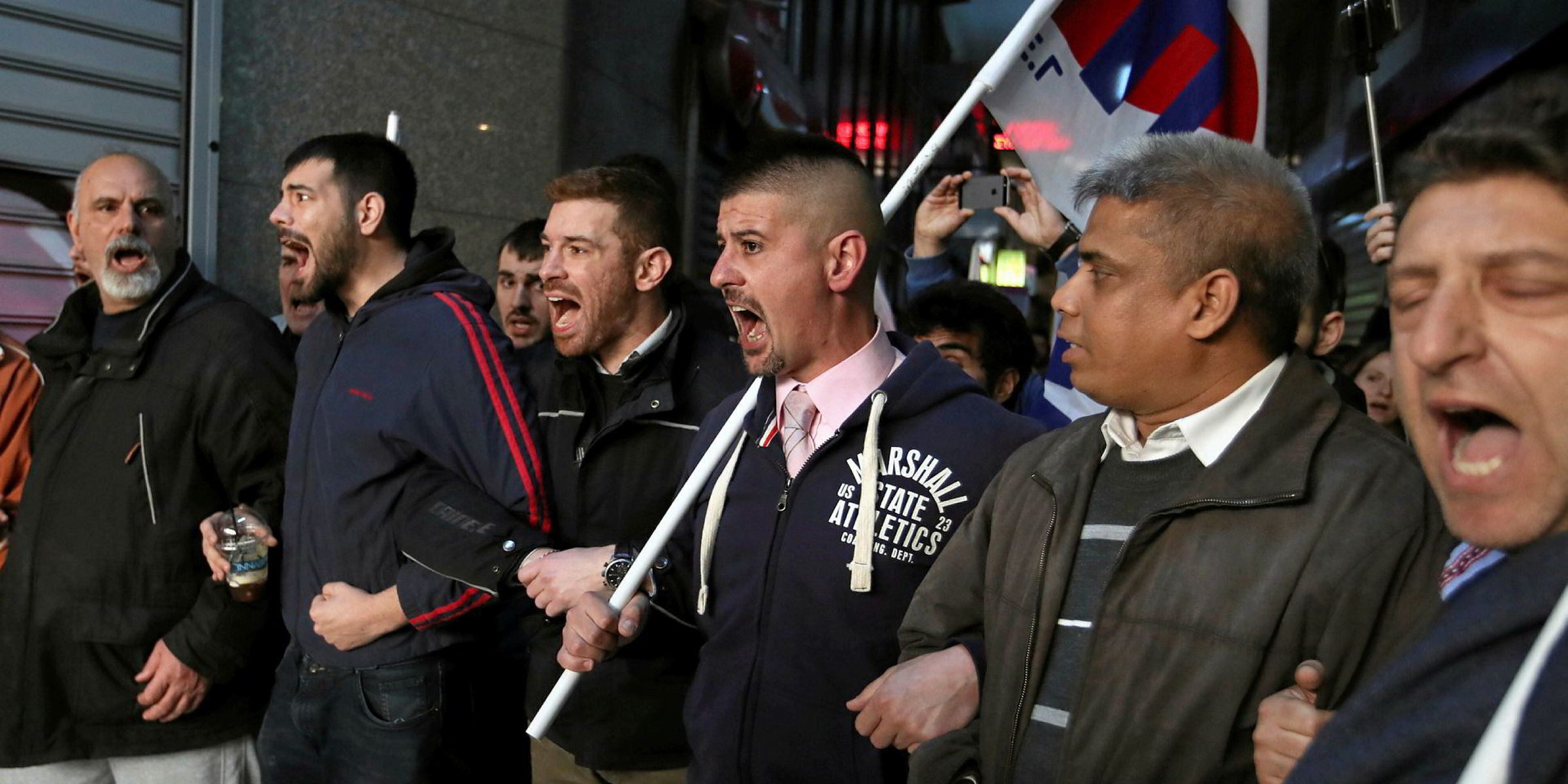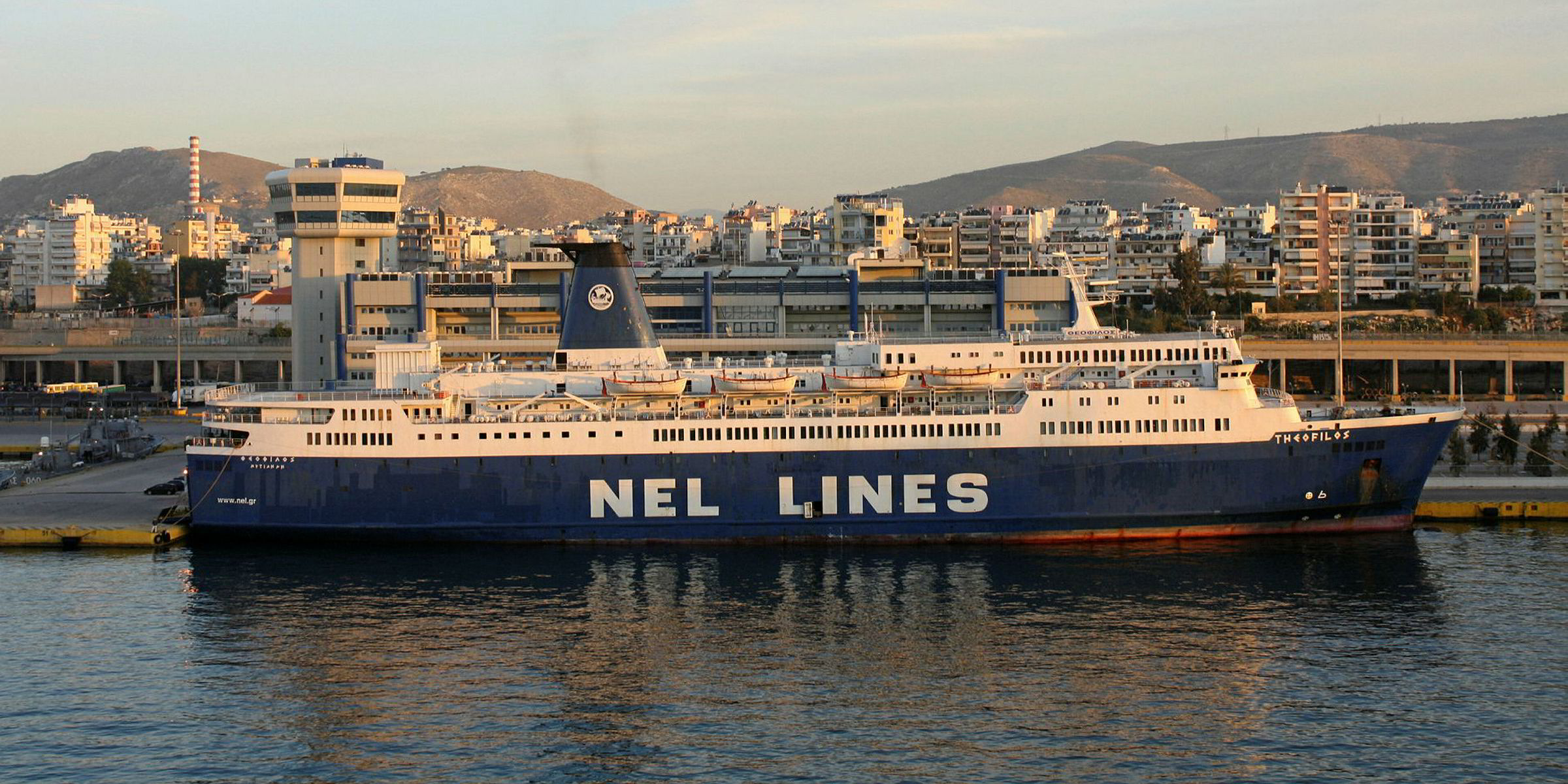Electronic auctions are speeding up the sale of arrested ships in Greece, dispensing with an outdated system of judicial sales piling up on court desks for years.
The quicker, cheaper, more flexible digital auctions may make Greece a more attractive place to arrest vessels.
Two vessels were sold the new way in the week to 7 March and at least three more have been scheduled through to early April.
Despite its advanced age, the 19,500-gt ropax Ionian Sky (built 1974) attracted interest in a competitive e-auction at an Athens notary's office on 7 March. The reserve price for the Hayashikane-built ship, which belonged to Greek ferry operator Agoudimos Lines, had been set at €1.4m ($1.72m).
A Cypriot company is said to have prevailed over two other contenders, offering a bid of €1.67m, sources close to the sale told TradeWinds. The ship was sold on behalf of National Bank of Greece.
In another electronic sale the week before, a private citizen forced the auction of the 1,800-dwt Pytheas (built 2018), a small product tanker newbuilding still under construction at the Kanellos Bros yard at Salamina, Greece.
The ship used to be managed by Liberia-registered Greek tanker player Andriamar Shipping. The Pytheas attracted one bid, by an entity called Creta Cargo III, fetching €1.35m. The winner paid €405,000 in cash, with the rest to follow later.
Such quick, flexible judicial sales have been the exception so far in Greece.
A telling example of the inefficient, overpriced old-style ship sales of the past are the auctions currently pursued by the Piraeus Port Authority (PPA). The Chinese-controlled operator of Greece's biggest port wants to get rid of several disused or abandoned vessels clogging up its waters and posing an environmental and navigation danger.

Last September, the 3,200-dwt Agia Zoni II (built 1972) sank, causing an oil spill. And in recent months, several others, such as the 6,300-gt ropax Makedonia (built 1989), had their ropes broken by heavy winds, which crashed them into neighbouring vessels or blew them ashore.
The PPA has not been very successful with its sales so far. They are carried out in the traditional way, with sealed letters submitted at company offices at administratively determined minimum prices that are usually set too high.
The port operator has failed twice to attract any interest for a laid-up ropax formerly with collapsed Greek ferry operator NEL Lines — the 15,100-gt European Express (built 1974). A third auction, with a minimum asking price of €1.97m, plus 24% for VAT, has been set for 23 March.
The PPA may again be asking too high a price in an auction, scheduled for 20 March, for another former NEL Lines ship, the 13,572-gt ro-ro Theofilos (built 1975).
The vessel, built at Germany’s Nobiskrug shipyard, has been in cold lay-up for several years and is understood to be in too poor a condition for further trading.
Finding a buyer may be a tall order, considering the PPA is asking at least €3.5m, plus 24% to cover VAT. “I will be pleasantly surprised if it fetches anything above scrap price,” one Piraeus insider told TradeWinds.

Judicial sellers may also have overpriced a third NEL Lines ship arrested by Piraeus Bank — the 3,536-gt high-speed passengership Aeolos Kenteris I (built 2000). No buyers showed up for the vessel when it was auctioned the old way two months ago with a minimum price of €6.5m.
Electronic ship auctions, which now appear to be the clear way forward, came as a result of sweeping changes made to Greece's bankruptcy and banking law as part of its international bailout.
Greek banks are sitting on non-performing loan exposure of about €100bn — nearly half their total loan portfolio. Distressed asset sales are an obvious way to reduce the bad-loan pile.
Such sales, however, have faced significant delays so far. The notoriously slow-moving courts are clogged with old cases. Anti-capitalism demonstrators have slowed courts down further, disrupting proceedings to prevent banks getting their hands on private citizens' property.

E-auctions are the easiest way to bypass such problems. Legislation allowing them has been a key demand of the country's creditors, the European Union and the International Monetary Fund, which are keen to see Greek banks on an even keel again.
Even e-auctions, however, are not smooth sailing in Greece. Small but rowdy groups of demonstrators have been assembling every Wednesday outside the offices of Athens notaries' tasked with carrying them out on their digital platforms.
Police officers form cordons to ward off protesters. Six policemen have been treated in hospital in clashes with such groups in recent weeks, police union officials said.
E-auctions of ships, however, are here to stay. On 14 March, a private citizen was scheduled to force the sale of the 900-dwt product tanker Jet XV (built 2008) from the fleet of Jet Tank Maritime Co, whose debt-laden group founder committed suicide two years ago. The minimum price is set at about €733,000.
Two more are scheduled in the coming weeks.
On 28 March, it is the turn of the 2,900-dwt Crisnik K (built 1982) on behalf of Ukrainian creditors. And on 4 April, another general cargoship, the 2,900-dwt Anatoly Churinov (built 1996), will be auctioned on behalf of Russian creditors.



